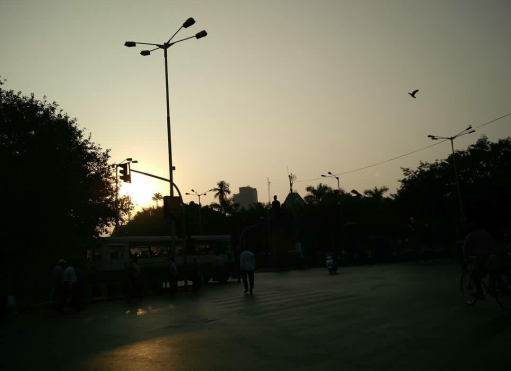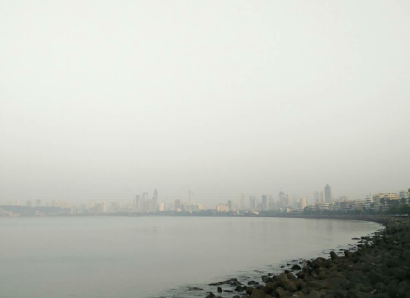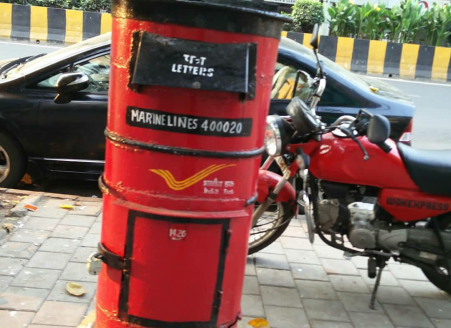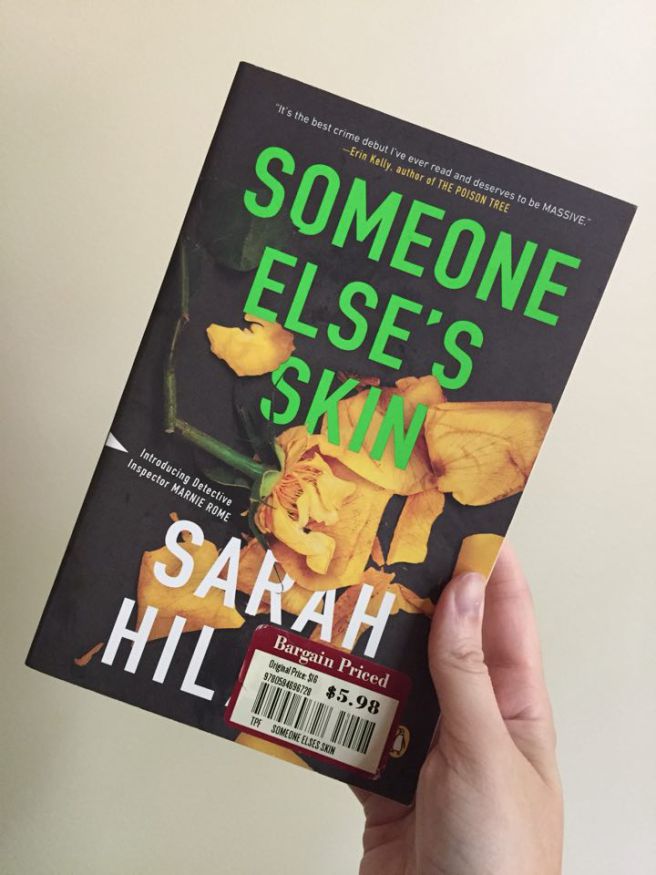I must return to Bombay for several reasons. One because I tricked myself into believing that a poem is enough but it never is and two because I am reading Vivian Gornick.
Seven years between you and a city of your childhood is enough to make you want to give up everything in its honour. Even if a great deal of this childhood was spent stuck in an apartment on the 8th floor. Even if Bombay was a two- month long vacation in a house full of singing aunties, a toothpick of an uncle whose only connection to the house, and his solitude was the wheezing AC in the only bedroom of the apartment, and an OCD prone grandmother who washed the floor and the TV with equal amounts of Surf Excel and madness.
This is all that Bombay was. This and the shopping bags from Linking Road that amma lugged into big suitcases every evening. These bags had what my sister and I wore for the rest of the year – pants in the gaudiest of red, purple, and pink. Jackets in Amrutanjan yellows, and night dresses with cows and moons on them.
She really did shop for the whole town, as dad would often say. She got bags with 20 compartments for various sisters-in-law and their cousins. Back in Bangalore, during functions, ‘Attige Bombay inda tandiddu,’ (Aunt got from Bombay) was muttered approvingly.
The evenings were hot and sweaty only because we stepped out of the AC room then. As I remember Mahim – its street walls were permanently blackened by building after building of factories. Blue carts stood idly on the footpath- and behind them – bearded old men in off-white shirts selling vad-pav. We’d hit Icy Spicy for Chinese and the good old Shobha for North Indian and Kulfi.

When I found myself in this city seven years later, I asked the nearest taxi driver to show me the way out and he mumbled something from his swollen red mouth, pan juice overflowing.
In the taxi, I was glued to the window, inhaling the formless, moving shapes outside. Big billboards with Deepika Padukone’s face on them told me that it has indeed been seven years. I think back to the time when long ago, returning from a film at 8 in the night, my aunt suddenly announced that Rani Mukherji and Karan Johar were sitting in the car next to us at the signal. I poked my head out the window, in between our car and theirs- and gaped at the horrified couple who were not Karan Johar and Rani Mukherjee.
They were then visibly upset and my aunt proceeded with all shamelessness to make it clear to them that even she wasn’t all that happy with them for not being Karan Johar and Rani Mukherjee.
Bombay hadn’t changed or if it had, I was happy to note that I didn’t care. The air was hot and smelled like it always had – Like the fantasy I had of going to Juhu Beach or an open drainage and blinding myself with a pair of binoculars, having set upon myself the task of finding the sea smell. I say binoculars here because of Garcia Marquez.
In Living to Tell the Tale, he mentions a night he spent with some friends. His brother couldn’t sleep properly because the goat next door was giving birth and the persistent moans of labour disturbed him so he said that the goat’s noise ‘is as annoying as a lighthouse’
That Lighthouse is my Binoculars.
Marquez later says that he would never forget this moment. And as it turns out, neither have I.
Bombay smell is like petrol smell. Not everybody appreciates it. There are takers and then there are abusers. I take it whole-nosedly.
It’s what I imagine I’ll smell if I stand at the edge of a flyover and open my nose out to the sea – and it’s the same smell that follows me, away from the flyover, past Kamathipura and Andheri and into Marine Drive.

In my room at the hotel next to Bombay hospital, I sneak into the small, parched balcony that is barely holding itself along with its hundred pigeon-droppings and the blackened floor. I lean out and leaning out, I reached into the corners of the mind where Bombay was tangled like the numerous black wires on the clotheslines outside the Loreto building in Mahim.
***

The next morning, I was walking up and down the Marine Drive beach assuming I’d get to see Shah Rukh Khan’s house somewhere. It was only after fishing out my phone and keying in my destination did I realise that that was in Bandra. You know how when you are young and if you are going to a city of film-land; you are positive that you will ‘run into’ a famous film star or at least catch a passing glance — à la Fan in Fan.
What is the point, I felt like asking after Google told me how far Mannat was from Marine Drive. I was sad for a moment and then I realised that I was in Paro Devi’s city and immediately felt like I do when I’m in love. I felt hopeful and alive from the pit of my stomach. It was 7:30 in the morning. I was a little drowsy, mildly hung-over, and no Shah Rukh Khan anywhere. But I realised that just being in the same city as your favourite writer can save you in ways even Shah Rukh Khan can’t.
Did Paro Devi come here often, I wondered. And through the rest of my stay there – it’s all I asked myself.
I was in the same city as another Shah-Rukh lover and that seemed enough. I was in the same city as a writer whose work I’d stalked for years. And there – standing in Marine Drive smiling sheepishly at all the joggers, I was able to rescue Bombay from Bombay.
I returned home with Two Bombays. One is the Bombay of my childhood and there it will remain happily for the rest of my life. The other is a borrowed Bombay – one that you know through someone else, one that comes alive in someone else’s writing. And because of some one else’s love for the city, you consume it and learn to love it.
Elena Ferrante said “When there is no love, not only the life of the people becomes sterile but the life of cities.”
When I first read this, I shook my head. I didn’t agree. For a long time I believed that cities come out alive when one is not in love. But maybe I should have just read it more carefully. She is not saying anything about being in love, she is saying when there is no love. Very different things. And back in Marine Drive that day, if I hadn’t thought about Paro Devi who had taught me so much about love through her writing and her documentaries — Bombay would have become sterile.
Feminism is about Love and kindness, she says in so many of her interviews. And as I have come to realise, it really is the closest definition of Feminism.
But what does Shah Rukh Khan have to do with love or feminism?
Now only I will start writing next post.







